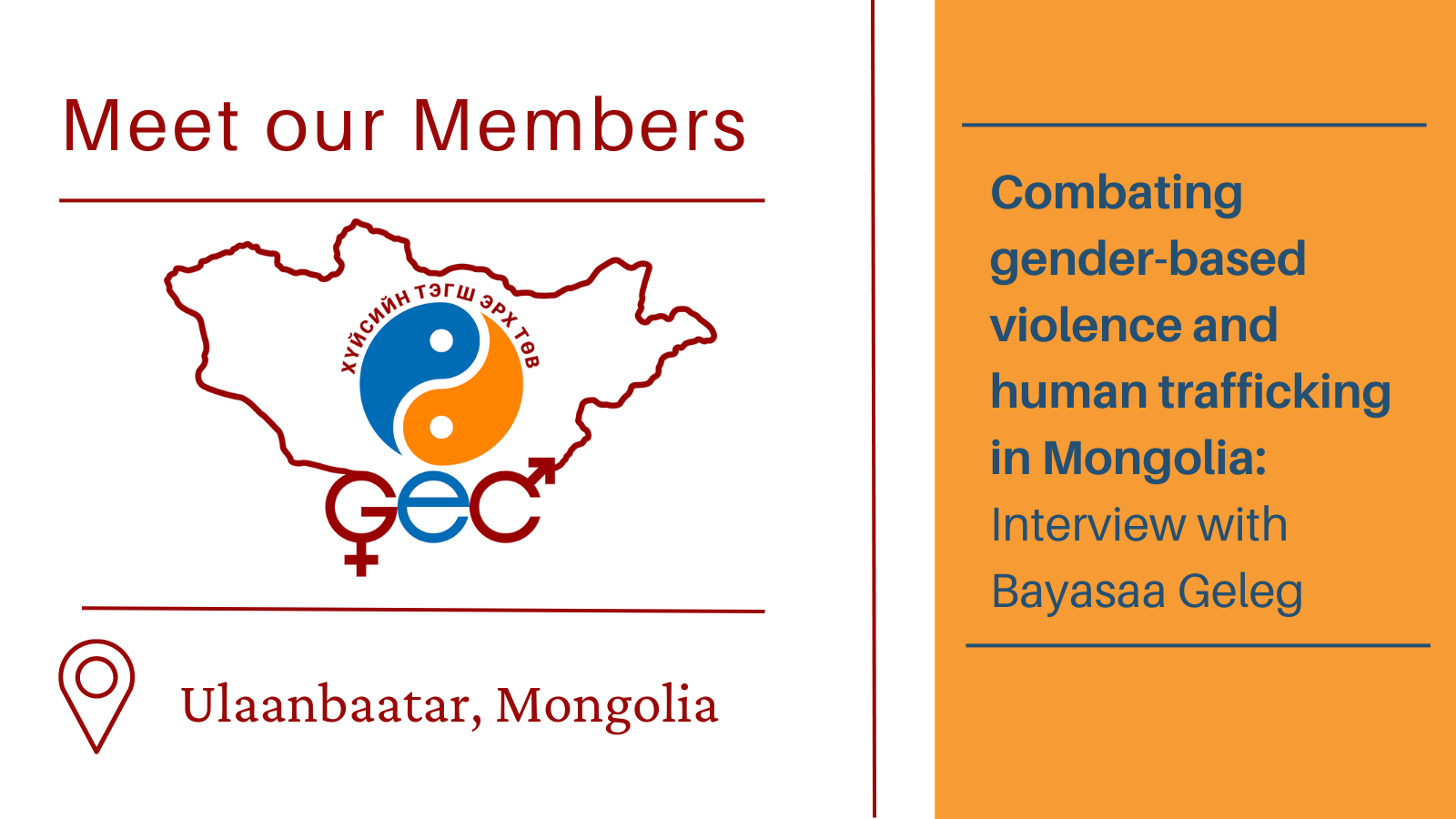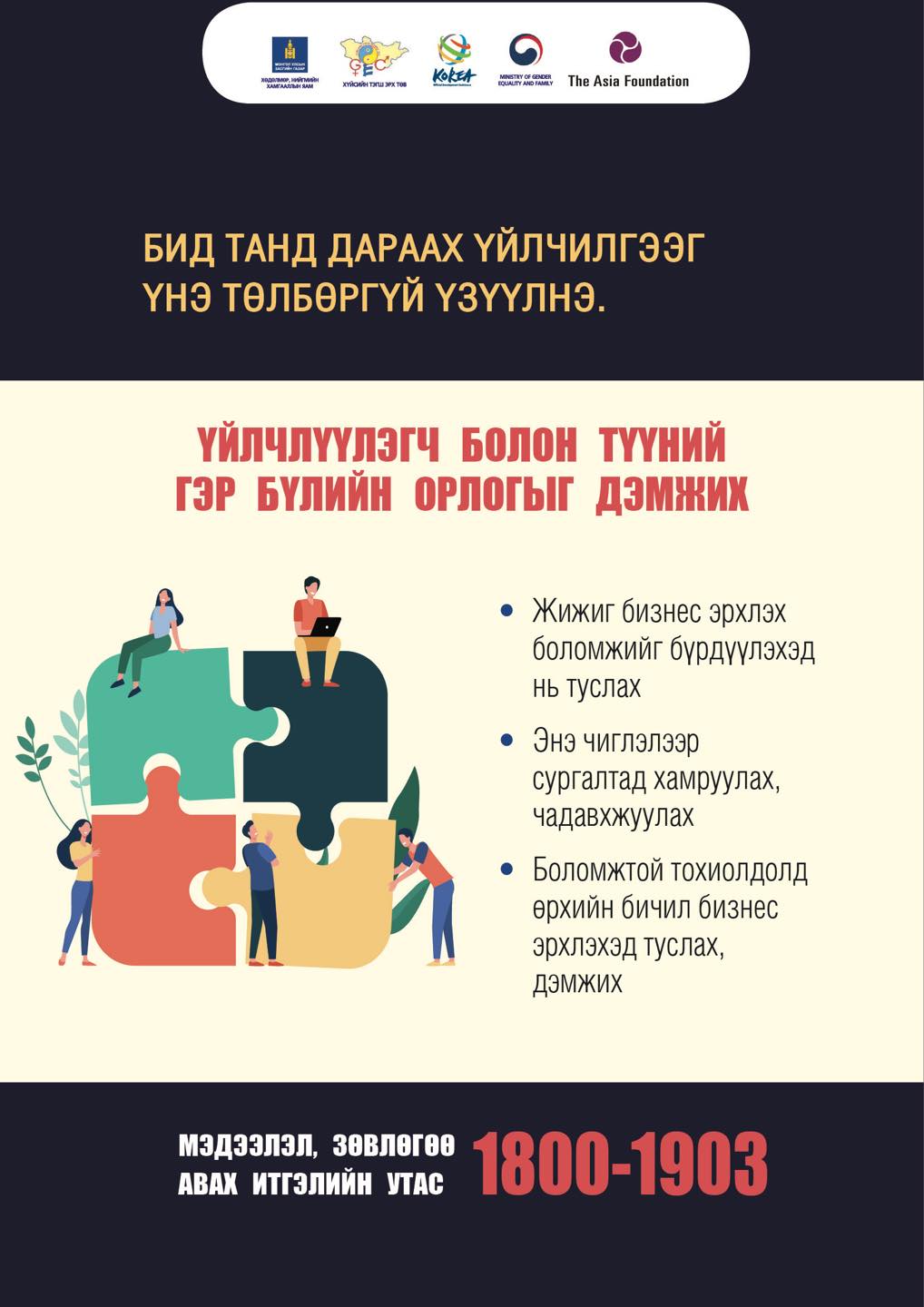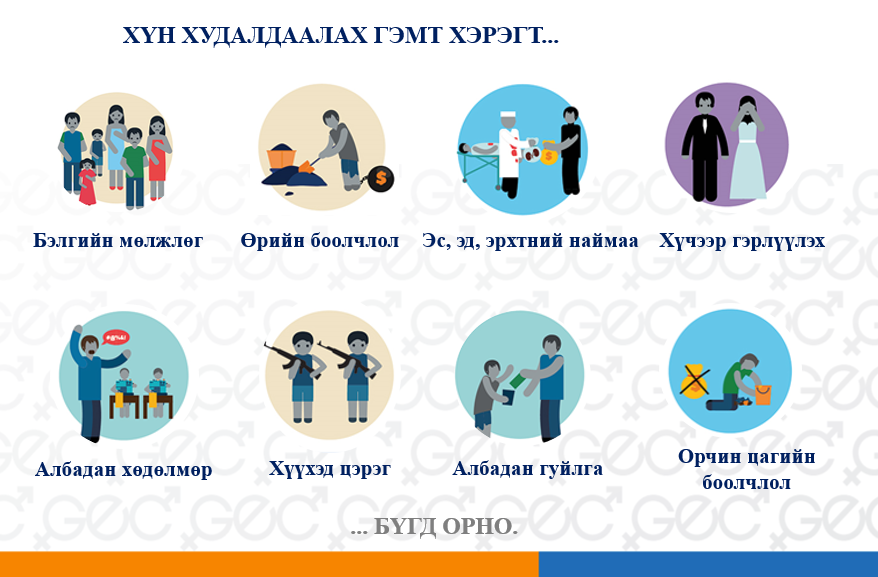 |
Mongolian Gender Equality Center (MGEC) is a member of GAATW based in Mongolia. Jennifer Janssen from the GAATW Secretariat conducted this interview with Bayasaa Geleg, Managing Director, in November 2022, to better understand the organisation’s history, current work, and context.
Jennifer Janssen: Thank you Bayasaa for joining me today. Can you please share a little about yourself, your position with MGEC, and when was MGEC founded and why?
Bayasaa Geleg: From 1997 to 2001, I worked as a child protection worker at the National Center Against Violence. At that time, my work was to provide counselling and support to children with their mothers who stayed at the shelter. Many girls who were victims of domestic violence, sexual violence and rape hid it from their mothers. Unfortunately, most of them are victims of family violence, but they wanted to keep it a secret so as not to make their mothers suffer again. I communicated with the children and their mothers to try to make them understand that the problem needs to be stopped. But because there were many difficulties in bringing a case to the legal authorities, we decided to create an independent organisation to help the children.

The Mongolian Gender Equality Center was founded in 2001 with the main objective to combat, eradicate, and prevent gender-based violence; to lobby for improvements in the legal environment for victims of gender-based violence and crimes such as rape and human trafficking; to lobby for improvements in the legal environment and decision making for the development of professional victim assistance services; to promote gender equality in all levels of society; to disseminate information about safe migration and risk prevention. Our mission is to strengthen humanitarian, civilian-based democratic society through combating and eradicating gender-based violence and crimes and establishing gender equality in our society.
We provide services such as: comprehensive reintegration services for victims of trafficking and gender-based violence using principles of empowerment, protection and personal development. We provide legal and psychological assistance to victims of trafficking, rape, sexual and gender-based violence. We provide food, clothing and health checks, serving their immediate basic needs. We provide a safe shelter for victims of trafficking and we help repatriate foreign victims, co-operating with NGOs, government and police departments, and international organisations. All of this falls under our Victim Protection Programme.
In our Prevention Programme, we aim to prevent gender-based violence, particularly human trafficking, rape, and sexual violence, and develop the public’s understanding of those crimes through training and research. We conduct document and policy research on gender-based violence and human rights violations; professional trainings on awareness of gender-based violence for the public, professionals, and targeted groups in order to give them appropriate information and knowledge. We also run public campaigns against gender-based violence. We have a hotline where we provide information and counselling on human trafficking prevention.
We advocate for law reform to protect and affirm the equality of men and women in all levels of society. We prevent and disseminate information about safe migration to the public, and, in collaboration with other organisations, we assist and provide services to migrants.
JJ: What are some of the main challenges for trafficked persons in Mongolia?
BG: There are many difficulties. First of all, we conduct preventive activities, but due to the financial situation, we cannot conduct them in a sustainable and long-term manner. So people forget what they have learnt. Also, many people lack information and the general public is not very knowledgeable about human trafficking. This, in turn, negatively affects victim identification and assistance.

Due to the insufficient understanding of human trafficking and the lack of financial compensation for victims, they are used as witnesses in the criminal trial against the traffickers and abandoned by the state. This situation discourages many victims from turning to law enforcement and gives criminals a sense of impunity.
JJ: How do you incorporate the perspectives and views of trafficked persons in your work?
BG: We work within 4P framework: Prevention, Protection, Prosecution, and Partnerships. We try to use the lessons we learn from real-life stories and work them into policy and activities. Based on the information that victims share with us, we develop prevention actions, policy advocacy, etc. In all these activities, we work closely with government agencies, law enforcement, and other NGOs.
Considering the need for comprehensive legislation to combat human trafficking and gender-based violence, we have made many recommendations to develop or improve laws, such as the Law on Gender Equality, the Criminal Law, the Law on Witness-Victim Protection, the Law on Child Protection, the Family Law, the Law on Donors, etc. We worked in the working group for drafting and amending these laws.
JJ: Thank you very much Bayasaa.
